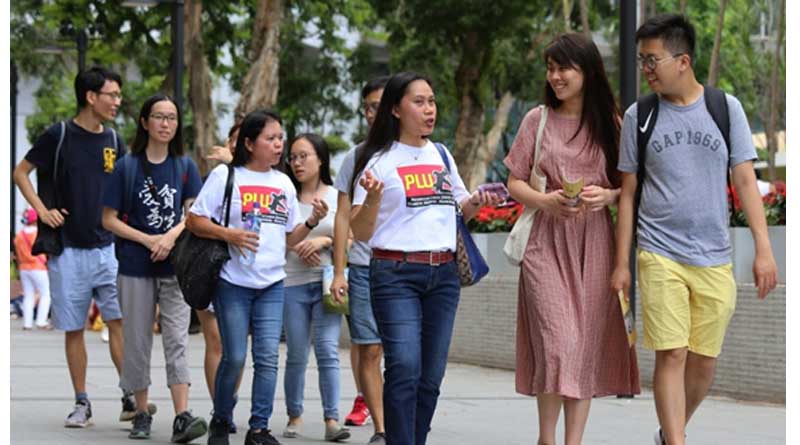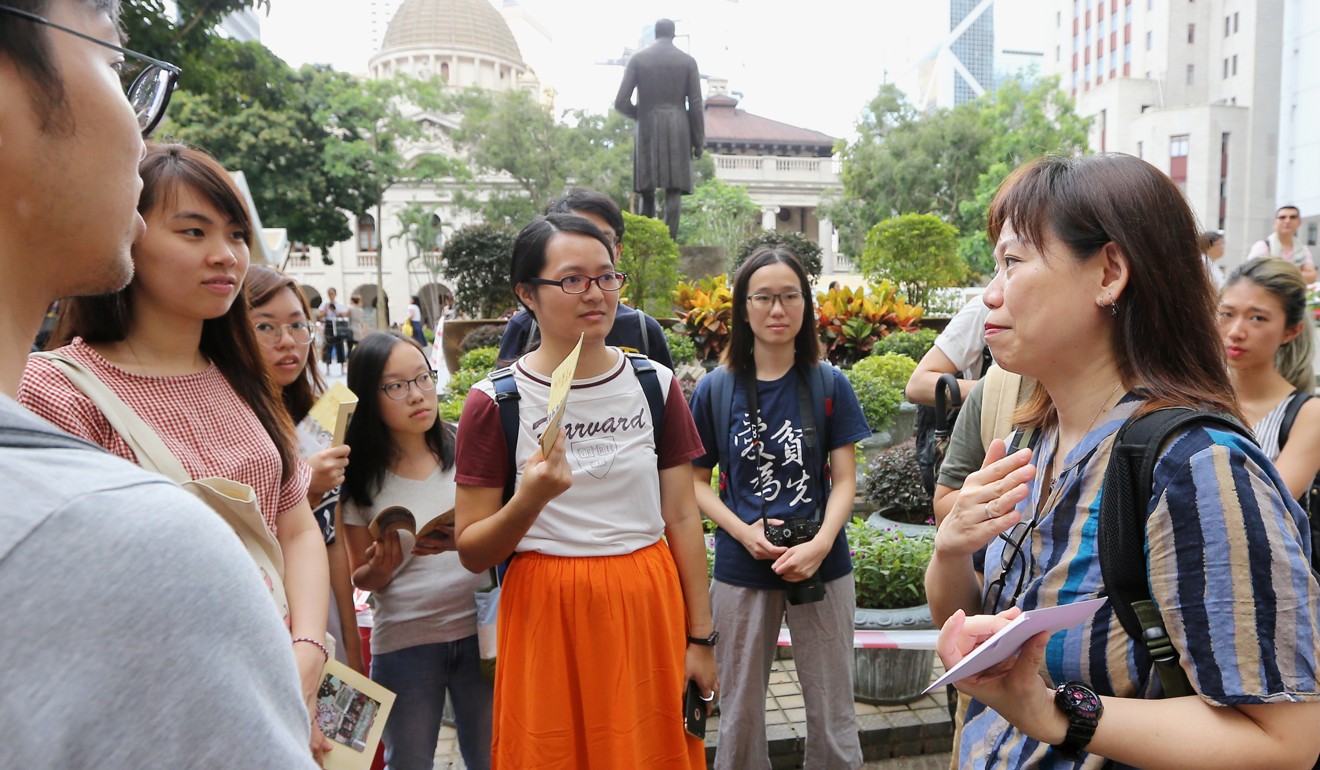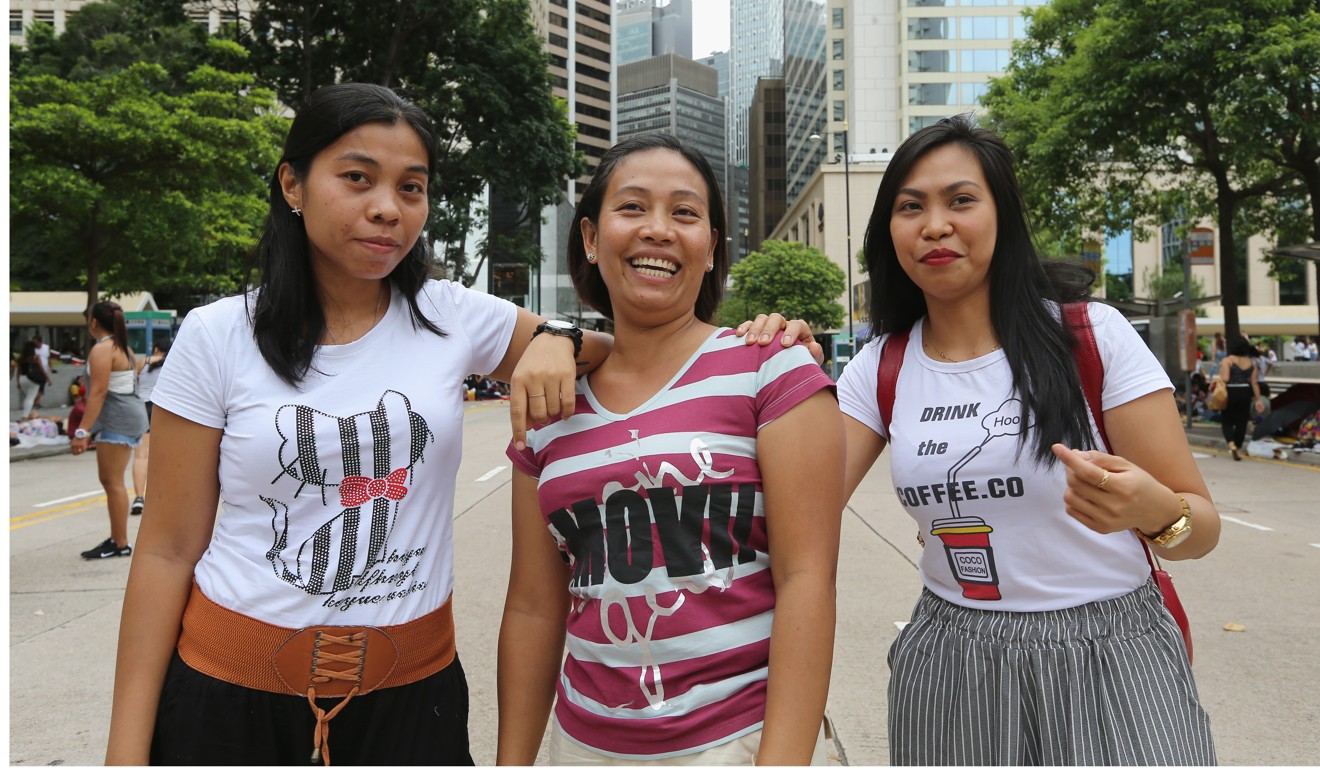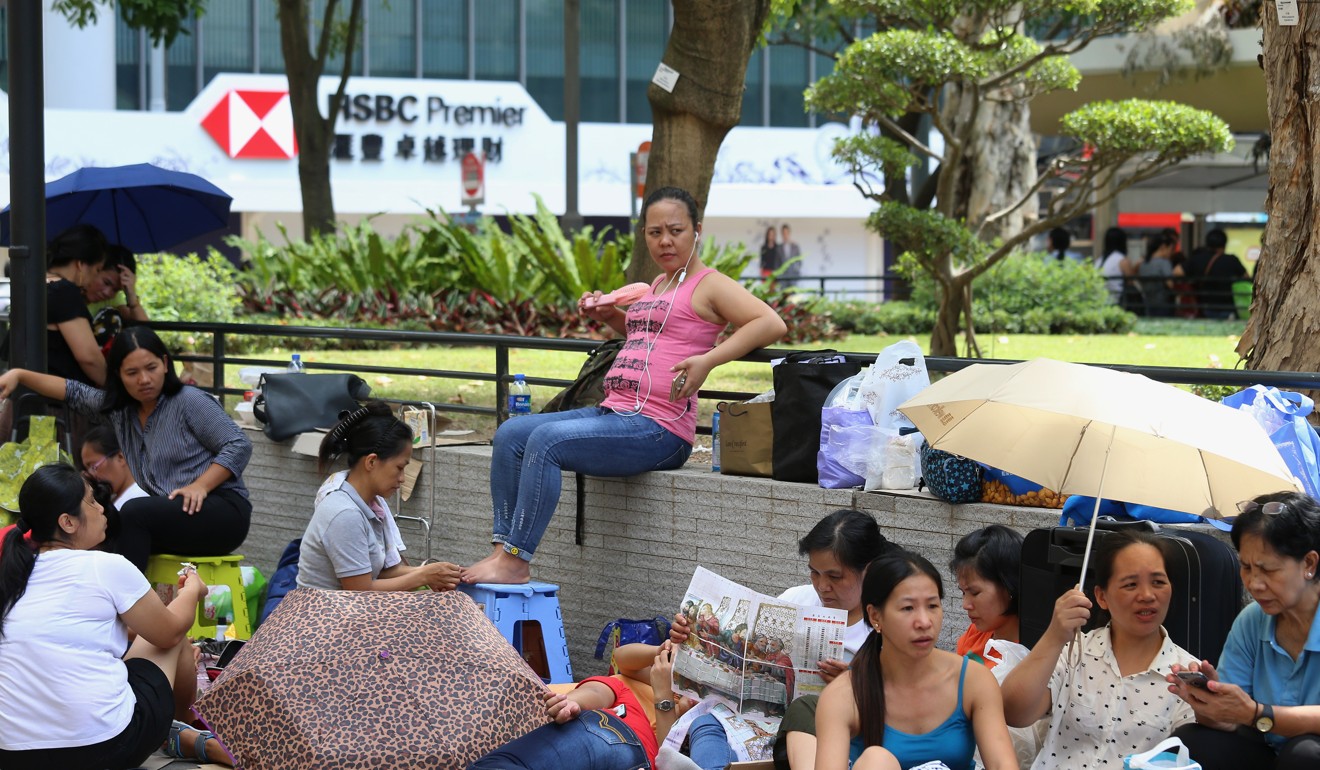Hong Kong Tour with a Difference – Meet Domestic Helpers Enjoying Their Day Off

Fourteen months ago, Melissa Masula scanned the faces of her five children under a dim light, then slipped out of her shabby home in Paranaque city, the Philippines.
It was 4am and the 37-year-old single mother had a flight to catch to Hong Kong.
On Sunday, perched on the edge of a flower bed at Statue Square in Central, she recalled the moment she bade a silent goodbye to her children, the youngest barely a month old.
“I didn’t cry. I just took a look at their faces, and then left,” Masula said. “I only focused on one thing: in a month I could send [my children] money.
“The kids are growing up fast. I have no choice but to grab the opportunity to earn money,” she added, as hundreds of domestic helpers chattered and picnicked around her, taking advantage of the fine weather after days of rain.
Masula, who left the children in the care of her two sisters-in-law, is one of the 360,000 or so domestic helpers working in Hong Kong, according to government statistics from last year. More than half – about 190,000 – are Filipinos like her while the rest are mostly from Indonesia.
They earn a minimum HK$4,410 (US$565) a month and get a mandatory day off every Sunday, with many sitting in groups on the pavements of Central, the business and shopping district on Hong Kong Island, or Victoria Park in Causeway Bay.
But their presence on the streets in bustling and space-scarce Hong Kong has been a source of tension.
In May, a pro-establishment lawmaker was forced to apologise after she called the maids’ presence in public spaces an inconvenience, and an “environmental hygiene” problem.
Maids’ groups derided her comments as “discriminatory, racist and offensive”.
Charity group Progressive Labour Union of Domestic Workers in Hong Kong said residents should try to better understand the situations domestic helpers are in, and since last year, it has been taking groups around Central to meet some of the women spending their day off there.
According to Esmenia Mendoza, 63, a senior member of the NGO, about 15 tours have been held since last year in cooperation with local schools and religious groups, attracting about 30 people each time on average. While the tours are open to all, participants are mostly high school and university students, she added.
“By sharing our culture and experiences, we hope that Hong Kong people can know more about us, which can help Filipinos to work [in better conditions] here,” explained Mendoza, who came to the city in 1988.
Teresa Li Kei-yan, a postgraduate student in her 20s, said that she joined the tour on Sunday “simply out of curiosity”.
“We had a maid when I was a child, and I remember being really close to her,” Li recalled.
“But I guess I never really asked about her life. And now she’s gone, we no longer keep in touch. So I can never get to know her now.”

Eva Leung, Li’s classmate, said her family has a helper who “tends to avoid telling us private things about herself”.
“She’s been serving my family for 17 years, but she is still very aware of the fact that we are the employers, and she is the employee,” Leung said, adding that she was afraid of bumping into her helper. “It would just feel so awkward.”
Savio Sou, a 21-year-old university student, said that he learned a lot about Filipino culture and issues that migrant helpers were facing in the city, such as not having enough food to eat and high placement fees charged by recruitment agencies.
In an interview with the Post last year, Secretary for Labour and Welfare Law Chi-kwong estimated that Hong Kong would need 600,000 migrant domestic helpers in 2047, because of the city’s rapidly ageing population. By that time, about one in three people would be above the age of 65.





